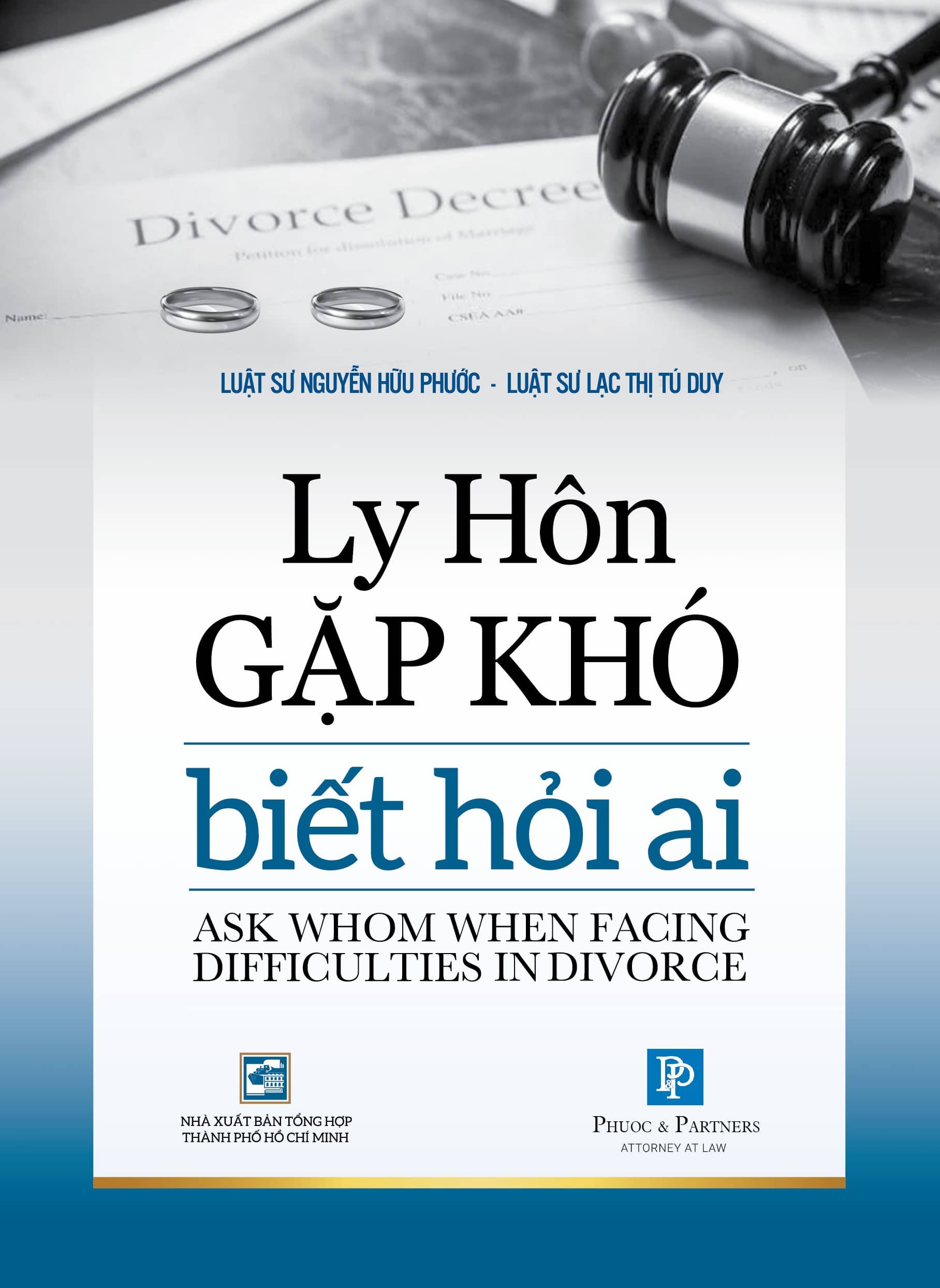Man and woman cohabiting as spouses without marriage registration
Depending on the actual situation, a man and a woman cohabiting as spouses without marriage registration will or will not be recognised by law as a spousal relationship is legally recognised or not recognised as the spouses’ relation. If this cohabitation is legally recognised, when they no longer wish to live together, the divorce procedure shall be conducted by the request of either spouse or both spouses, which can be carried out under the form of unilateral divorce or divorce by mutual consent. On the other hand, if the act of living together is not recognised by the law and the spouses want to live apart, they would not be required to conduct the divorce procedure as stipulated by the law. The specific cases are as follows:
- Case 01: Man and woman cohabiting as spouses have not applied for marriage registration before 03 January 1987. In this case, their marriage relationship shall be recognised from the date on which they have established the cohabitation regardless of the act of conducting marriage registration or not[2]. When they no longer want to cohabit, divorce proceedings may be conducted at the request of the spouses and subject to divorce provisions in the Law on Marriage and Family and the Civil Proceedings Law.
- Case 02: Man and woman cohabiting as spouses from 03 January 1987 to 01 January 2001 have not applied for marriage registration. Their divorce will be settled as follows:
- From 01 January 2001 to 01 January 2003, if spouses have not registered for marriage or have already registered their marriage and file a petition for divorce, the competent Court shall accept the case and apply the divorce provisions of the Law on Marriage and Family 2000 to settle the divorce case according to general procedures. It should be noted that, if the spouses implement the marriage registration as prescribed, their spousal relationship will still be recognised as established from the date that they cohabite as spouses, not from the date of marriage registration;
- After 01 January 2003, if the spouses have not registered their marriage as prescribed, the law does not recognise them as spouses. Therefore, even if they request for a divorce, the Court will not resolve the divorce for them as requested. In this case, the Court shall declare non-recognition of their spousal relationship by its judgement.
3. Case 03: Man and woman cohabiting as spouses from 01 January 2001 onwards without marriage registration. In this case, the Court shall handle similar cases of man and woman cohabiting as spouses from 03 January 1987 to 01 January 2001, but after 01 January 2003, they still do not register their marriage.
Man and woman living together are considered as cohabiting if they meet the prescribed marriage conditions and have one of the following indicators:
- Celebrating a wedding when living together;
- Man and woman cohabiting as spouses are accepted by the family (of one or both spouses);
- Their cohabiting is witnessed by another person or organisation; and
- They take care of, help each other through cohabitation,, build a family together.
The time when man and woman start living together as spouses is the date when they hold the wedding ceremony; when they live together and are accepted by their families (of one or both spouses) or when they live together and are witnessed by another person or organisation, or when they take care of and help each other, build a family together through cohabitation[4].
In case a man and a woman cohabiting as spouses without marriage registration and are not recognised by law, before the competent Court declares not to recognise them as spouses and resolves matters related to property relations, responsibilities to children and their obligations to the contracts of the two spouses, the two spouses must be administratively sanctioned in the field of marriage and family or are prosecuted for criminal liability, depending on the seriousness of their violations. In particular, in case the two spouses violate the prohibition of the law, sanctioning forms, levels of sanction will be higher than other cases, specifically “Getting married or cohabitating as spouses between people of the same direct blood line; relatives within three generations; adoptive parent and adopted child; or former adoptive parent and adopted child, father-in-law and daughter-in-law, mother-in-law and son-in-law, or stepparent and stepchild”[6].
Handling property relations, obligations with children and liability for contracts of the two spouses not recognised as having marital relationship by the law
If a man and a woman cohabiting as spouses without marriage registration and are not recognised by law as mentioned above, besides the declaration of non-recognition of their spousal relationship, at the request of the spouses to children raising and common property division, the competent Court shall handle the rights and obligations of parents towards their children according to the rights and obligations of parents and children during divorce; property relations, obligations towards contracts of the man and the woman cohabiting as spouses without marriage registration shall be settled under their agreement. In case there is no agreement, they shall be settled in accordance with the Civil Code and other relevant laws. The settlement of property relations must ensure lawful rights and interests of woman and children; housework and other related work maintaining the cohabitation shall be regarded as income-generating labour[8].
[4] Article 2.(d) of the Joint Circular 01/2001/TTLT-TANDTC-VKSNDTC-BTP.
[6] Article 2.1 of the Law on Handling Administrative Violations 2012; Article 5.2.(d) of the Law on Marriage and Family 2014; Article 48 of the Decree 110/2013/ND-CP; Article 182 of the Criminal Code 2015.
[8] Article 3 of the Joint Circular 01/2001/TTLT-TANDTC-VKSNDTC-BTP; Article 14, 15, 16 of the Law on Marriage and Family 2014
If you would like more information on how we can assist you with divorce issues, please contact us at: +84 (28) 36223522 or email us at info@phuoc-partner.com

